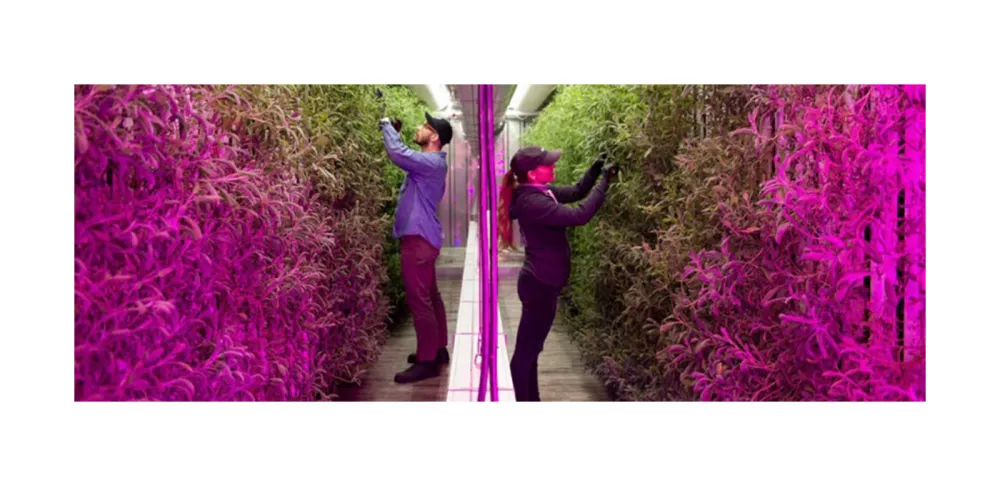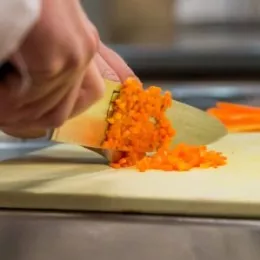In January, students from ICC's Professional Culinary Arts program with Farm-to-Table extension journeyed to Flushing Avenue in Brooklyn to visit Square Roots. Co-founded by ICC alumnus Kimbal Musk in 2017, Square Roots is an urban indoor farm growing local, real food while training the next generation of leaders in agriculture.
In early 2019, Square Roots expanded to Grand Rapids, Michigan and partnered with Gordon Food Service to grow produce exclusively for their customers. In the future, they hope to continue the expansion of their farms throughout Gordon Food Service distribution centers across North America.

While getting a first-hand look at Square Roots, Farm-to-Table students learned that the operation is so much more than a traditional farm. When Square Roots established its campus in Brooklyn, they didn’t just tend to a farm — they planted 10 reclaimed shipping containers in the middle of a parking lot and built miniature farms from the future. These hydroponic farms grow certain non-GMO vegetables around the clock — like mint, basil and other leafy greens — without pesticides.

To learn more about Square Roots and how they’re changing the world of urban farming, read below!
SEED-TO-SALES

Instead of growing mass amounts of produce to ship globally, Square Roots focuses on distributing their product locally. Through these practices, they’re actively reducing damage that can occur to produce, which results in less food waste and less spoiled product. They also transport all of their products on bicycles with storage containers—less transport and distribution means less of a carbon footprint!
TECHNOLOGY AT THE FARMER & CONSUMER'S FINGERTIPS

Technology is at the heart of Square Roots. Using data that they collect from their growing systems, farmers are able to analyze everything from when the seedlings were transplanted to crop yields. This allows the farmers to create a timeline for how the leafy greens were grown and put a QR code onto their packaging. Then, consumers can look up their produce’s planting timeline and learn more about how the crop was grown.
NEXT-GEN FARMER TRAINING PROGRAM

In addition to their more environmentally friendly distribution practices and technology for their farmers, they are also committed to inspiring the next generation of farmers. Throughout the Next-Gen Farmer Training Program, trainees get to learn all about plant science and computer science, in addition to earning a salary and health benefits, which is not always available to similar apprenticeships.
This blog post was originally published by the International Culinary Center (ICC), founded as The French Culinary Institute (FCI). In 2020, ICE and ICC came together on one strong and dynamic national platform at ICE's campuses in New York City and Los Angeles. Explore your culinary education where the legacy lives on.



